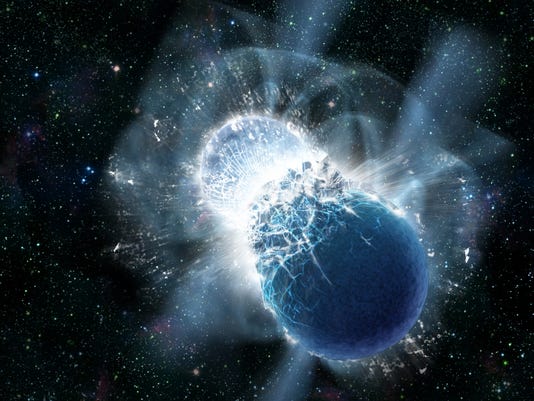Sometimes screwing up a science experiment isn't such a bad thing. Case in point: Researchers in Sweden accidentally left their equipment running on an experiment over a weekend, and ended up creating something awesome — Upsalite, the world's most efficient water absorber, reports The Independent.
This substance, prohibitively expensive and difficult to produce until now, can potentially do everything from controlling moisture on a hockey rink to cleaning up toxic waste and oil spills, reports Science Blog.
Scientists' mistake uncovers 'impossible material'
Forget the Rubber Ducky—Make Your Bathtub Into an IPad
 Close your eyes and imagine how it would feel to go for a swim inside your iPad’s touchscreen. It could be a little like the surreal, interactive “AquaTop display” experience, created by researchers at the University of Tokyo Electro Communications Laboratory.
Close your eyes and imagine how it would feel to go for a swim inside your iPad’s touchscreen. It could be a little like the surreal, interactive “AquaTop display” experience, created by researchers at the University of Tokyo Electro Communications Laboratory.
The prototype model is just a tank of water, but the plan is for the AquaTop to turn your everyday bathtub into an immersive touchscreen, allowing the bather to watch movies, look at photos, and play games.
Scientists can implant false memories into mice
.jpg) False memories have been implanted into mice, scientists say.
False memories have been implanted into mice, scientists say.
A team was able to make the mice wrongly associate a benign environment with a previous unpleasant experience from different surroundings.
The researchers conditioned a network of neurons to respond to light, making the mice recall the unpleasant environment. Reporting in Science, they say it could one day shed light into how false memories occur in humans.
Colliding stars could be source of gold on Earth
 The gold glinting on your wedding band was likely born in a cataclysmic merger of two exceedingly exotic stars, astronomers report Wednesday.
The gold glinting on your wedding band was likely born in a cataclysmic merger of two exceedingly exotic stars, astronomers report Wednesday.
Dying stars billions of years ago cooked up most of the lighter elements in the universe, the oxygen in the air and calcium of our bones, and blasted it across the cosmos in their final explosive moments. We are stardust, as the singer Joni Mitchell put it.
Death of a sun-like star captured by Hubble
 NASA's Hubble Space Telescope and Chandra X-ray Observatory observed the death of a star much like the sun.
NASA's Hubble Space Telescope and Chandra X-ray Observatory observed the death of a star much like the sun.
NGC 2392, located about 4,200 light years from Earth, is a dying star nicknamed the Eskimo Nebula -- what astronomers call a planetary nebula. Planetary nebulas actually have nothing to do with planets, but the objects looked like planetary disks to earlier astronomers looking through small optical telescopes.
Giant iceberg breaks off Antarctica glacier
An iceberg larger than the city of Chicago broke off of Antartica's Pine Island Glacier Monday and is now floating freely in the Amundsen Sea.
According to Live Science, the giant iceberg measures about 278 square miles and it was spotted floating in the wild by TerraSAR-X, an Earth-observing satellite operated by the German Space Agency (DLR).
Antarctic Lake Vostok buried under two miles of ice found to teem with life
 Analysis of ice cores obtained from the basin of Lake Vostok, the subglacial lake that Russian scientists drilled down to in 2012, have revealed DNA from an estimated 3,507 organisms.
Analysis of ice cores obtained from the basin of Lake Vostok, the subglacial lake that Russian scientists drilled down to in 2012, have revealed DNA from an estimated 3,507 organisms.
While the majority were found to be bacteria, many of which were new to science, there were also other single celled organisms and multicellular organisms found, including from fungi.
More Articles...
Page 24 of 61

 Science Glance
Science Glance






























